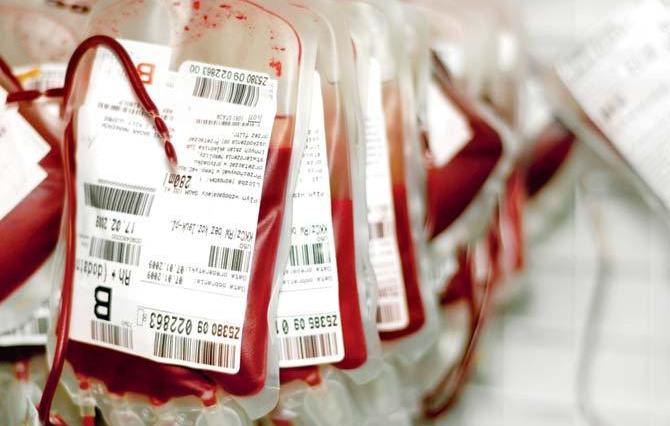GHANA experienced shortage of 111,000 units of blood in 2018, representing 39.7% of national demand.
This means that thousands of Ghanaians with various health conditions that required blood transfusion died as a result of the non-availability of blood.
280,000 Units annual demand
As of the end of last year, the national annual demand for blood was 280,000 units.
169,000 Units of blood collected in 2018
However, records from the National Blood Service indicate that 169,000 units of blood were collected nationwide last year.
37% of blood collected from voluntary donors
Out of the total units, 37% were collected from Voluntary Unpaid Blood Donor source (VUBDs).
63% of blood collected from family replacement donors
The remaining 63% came from family replacement donors, which is well known to be often a hidden-paid system that compromises the adequacy and safety of the national blood supplies of any country that depends mainly on that system.
Over-reliance on family replacement donations
Head of Administration and Support Services of the National Blood Service (NBS), Mr Prince Ernest Asante noted that the over-reliance on family replacement donation places the onus of blood supply on family relations and friends of patients, rather than the health system.
In Ghana, however, the national blood supply system relies heavily on replacement donations by family relations and friends of patients.
Only 40% of voluntary blood donations
This is the case because voluntary blood donations are usually below 40% of the national blood requirement.
Efforts to increase access to safe and quality blood services
Mr Asante explained that it is in this light that the NBS has embarked on a National Blood Supply Strengthening Programme (NBSSP) to increase access to safe and quality blood services throughout the country.
75% voluntary donations targeted
He said the main objective of the programme was to increase blood collection from voluntary donors from the current low proportion of 36% to 75% within the short to medium term.
Collaboration with various groups and institutions
To achieve this, he stated that the NBS has intensified its collaboration with other public institutions, religious bodies, educational institutions, corporate organisations, organised community groups and community leaders to mobilise voluntary blood donors from low-risk populations to donate blood regularly.
“It is gratifying to note that the NBSSP is receiving tremendous support from religious bodies, educational institutions and governmental agencies, particularly the Health Ministry and its agencies, and the Ghana Revenue Authority (GRA).
“Telecommunication companies, particularly MTN and Vodafone, media organisations, including the Daily Graphic, and some other corporate organisations such as the Kaysen Group of Companies, have been very supportive of blood donation campaigns over the years,” he added.
However, Mr Asante noted that there was the need for more corporate organisations, local assemblies, and public service institutions to come on board and support the NBSSP to accelerate the country’s progress towards achieving self-sufficiency in blood and blood products based on 100% voluntary donations as espoused by the World Health Organisation (WHO). “This calls for a concerted national effort co-ordinated by the NBS and actively supported by the National Commission for Civic Education (NCCE), the National House of Chiefs, Civil Society Organisations (CSOs), and the Coalition of Non-Governmental Organisations in Health, among others, to effectively implement the NBSSP to address the perennial shortage of blood and blood products in health facilities.
“Collectively, we can, and must, strengthen the national blood supply system and make it sustainable by donating blood or supporting voluntary blood donation on a regular basis,” he stressed.
Mr Asante said this would reverse the current situation of over-reliance on family replacement donations, saying, “We owe it a duty to ourselves to support the NBS to strengthen the national blood supply system to ensure that blood and blood products are readily available and accessible in health facilities at the point of need as a prerequisite for the attainment of universal health coverage.”
This, he said, would avert avoidable deaths due to road crashes, postpartum haemorrhage, severe anaemia in children, and other medical emergencies that require immediate blood transfusion.
Ghana has espoused the country’s commitment to Universal Health Coverage (UHC) as the overarching objective for the achievement of the health targets of Goal 3 of the Sustainable Development Goals (SDG 3). UHC, according to the World Health Organisation (WHO), means ensuring that all people have access to needed health services of sufficient quality and without exposure to financial hardship.
Mr Asante observed that a functional health system is sine qua non to achieving UHC and SDG 3.
He added that blood transfusion remains indispensable component of healthcare delivery, which contributes to saving thousands of lives each year in routine and emergency cases.
He stated that blood transfusion enables complex medical and surgical interventions to be undertaken and dramatically improves life expectancy and quality of life of patients with various acute and chronic conditions.
Source: The Finder

